Collection
The 10 Best Books We Read That Came Out This Year
Use this as a last-minute gift guide or inspiration for your own reading list.
In this literary memoir, Krouse recounts being a down-on-her-luck novelist who got into P.I. work as a result of her uncanny knack for getting strangers to open up. Her new gig leads her to investigate a gang rape at a local Colorado college involving members of the football team and recruits. The procedural that follows is both narratively straightforward and complex with introspection as Krouse comes to terms with her own abuse through her P.I. work and writing. With Tell Me Everything, Krouse figures out a whole new way to do what good writing does: She makes the personal universal and vice versa. –Rich Juzwiak
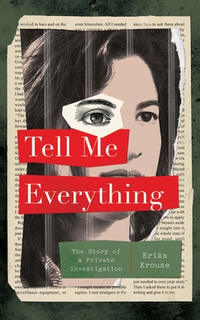
In a year stuffed to the brim with ballet fodder good, bad, and polarizing, Howrey’s latest novel stood above the rest as a poignant, searing, and rightly conflicted account of ballet’s past and present. Howrey, a former Joffrey Ballet dancer, constructs sentences and passages like only a true artist can, reflecting the pain and glory her characters feel. She masterfully choreographed her fictional world in a way that revived my own belief that art, whether in the discipline of dance or writing, can heal us—even when that art form is, itself, broken. –Emily Leibert
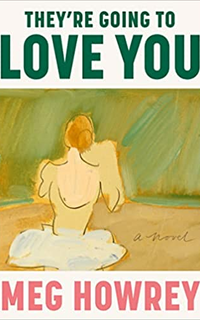
It feels sort of like cheating to say that a National Book Award finalist is the best novel I read this year—like, duh! Of course it is! But Thankam Mathews’s book about precarity and love and work and attempting to find meaning in your 20s hit all the right emotional notes for me. It’s smart but not showy, thoughtful but not maudlin, with a cast of characters whom I felt so much love for, despite their (well-articulated) flaws. –Nora Biette-Timmons
I spent my entire year thinking about Roe v. Wade and abortion. Becca’s book was essential reading to clarify my thoughts, to remember who I do this work for, and to learn where the movement misstepped and where activists succeeded. It’s an amazing book for the person in your life who still cannot believe Roe is gone. –Caitlin Cruz
As someone who was finishing up her master’s thesis earlier this year, picking up a book about an eighth-year graduate student struggling to finish her dissertation might have felt too on the nose for a fun read if it weren’t for how freshly Chou tackles questions of identity, merit, intellectualism, admiration, and the thorny places where they meet. The book centers around Ingrid Yang, a Taiwanese American Ph.D. candidate bored to death by her own project (relatable) until she makes an earth-shattering discovery about the subject of her studies: the allegedly deceased Xiao-Wen Chu. As this one facet of her reality radically shifts and she devolves into sheer obsession (we’re talking hiring private investigators; stalking people and hiding in their closets), the rest of Ingrid’s world starts to unravel as she begins to see other things in a new light, from her white fiancé, who works as a Japanese literary translator and is obsessed with Asian culture (woof), and the woker-than-thou scholars in her department (cringe but salvageable). Academia certainly isn’t for everybody, but the sharp humor and satirical wit with which Chou approaches it all makes a story filled with destabilizing twists and turns as lucid of a trip as any. –Rodlyn-mae Banting
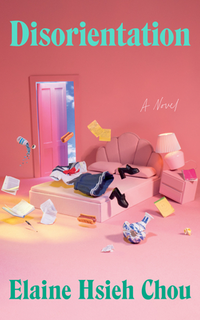
An investigated history, with dashes of memoir, true crime, and meditations on what it means to remember and to forgive, Come to This Court and Cry truly has everything. (Disclaimer: I’m friends with the author, but if you doubt the sincerity of my praise, check out the reviews.) It centers on the murder of Herbert Cukurs, a Latvian Nazi collaborator responsible for brutal mass deaths, and the competing efforts by family, state officials, survivors, and Jewish communities to craft the narrative of his memory. Woven into this investigation is Kinstler’s own family history: Though her maternal relatives are Jewish, her paternal grandfather worked alongside Cukurs and then disappeared after World War II. –NBT
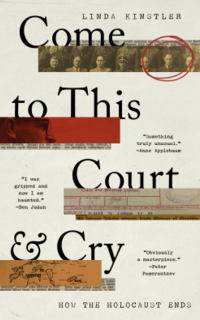
I looooved reading about the social and design history of America’s shopping malls from architecture critic, Alexandra Lange. Did you know that the creator of the shopping mall was a European socialist? I did not! During a year that was, personally, marked by gathering in public once again, I was grateful to read and get to think about the spaces that have been designed to foster community. –Kady Ruth Ashcraft
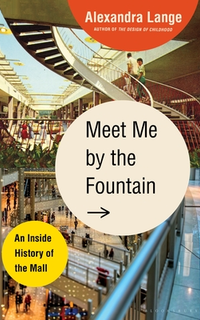
I’ve never had a short story—let alone a collection of short stories—stick with me like this book. A bone-melting disease, a void slowly swallowing the Earth, a world where we’re attracted to people’s organs: These stories are futuristic, fucked-up fairytales that are darkly funny and deeply disturbing. A few reviews compared the tales to Dark Mirror, which feels like the most succinct comparison. One story, in particular, has continued to haunt me in my most vulnerable moments: When I can’t fall asleep at 2 a.m., when I’m trapped in a days-long hangover, when I’m in the throes of an existential crisis on a Sunday night and my brain is thinking of all the different ways I could die. Are these stories devastating? Yes. Are they also somehow delightful? Yes! Honestly, I can’t recommend it enough. –Lauren Tousignant
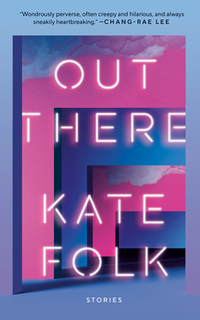
Rankin’s book is a searing history of the people who have made abortion access possible for decades—not legislators and doctors, but everyday people willing to put their bodies on the line outside abortion clinics and support patients through ongoing, terrifying threats. Rankin interviews the family and friends of clinic volunteers and abortion providers who have lost their lives to anti-abortion violence; she speaks to abortion clinic volunteers whose clinics have been burned to the ground, who have been assaulted, trampled, and nearly run over by anti-abortion activists. And even though her book came out months before the Supreme Court overturned Roe v. Wade in June, Bodies On the Line is clear-eyed about the future of abortion access, and what we will have to do for abortion access even when physical abortion clinics are gone. –Kylie Cheung
Even those who know nothing about the country music industry can likely name some of its sins. Here, Morris doesn’t just call each one out and contextualize them, but she accounts for what the industry requires of artists like Kacey Musgraves, Maren Morris, and Mickey Guyton to become names we know, and what it takes from those others we’ve yet to hear of. Her precise reporting—bolstered by truly impressive access to today’s outlaws of country music—unspools across the page in a way that almost feels cinematic at times.
I had the privilege of speaking to Moss in July about the 25th anniversary of Lilith Fair and will remember her passion for chronicling the artistry of women and femmes playing all venues—from sold-out stadiums to desolate dives—for a long time. –Audra Heinrichs



